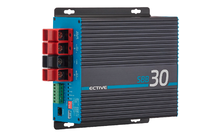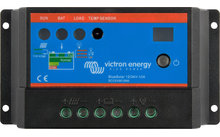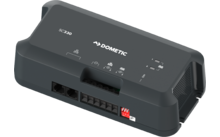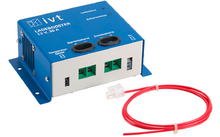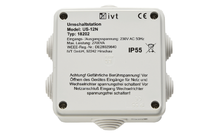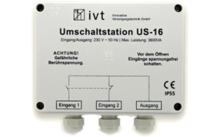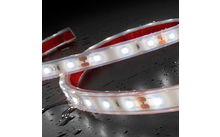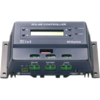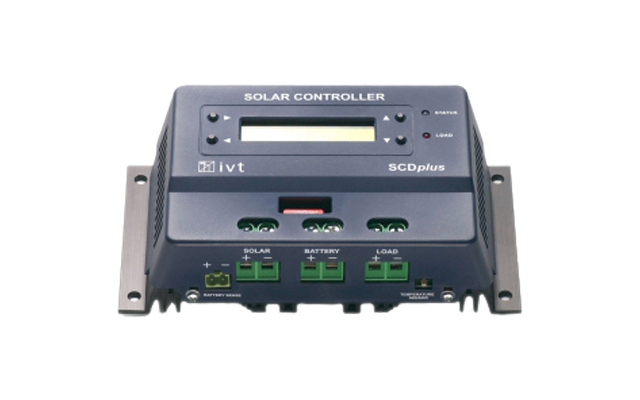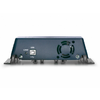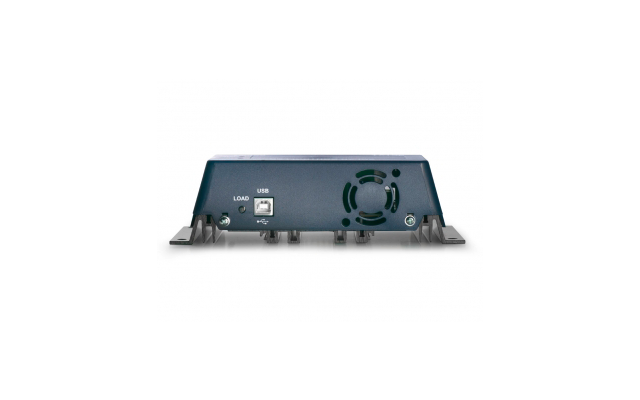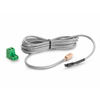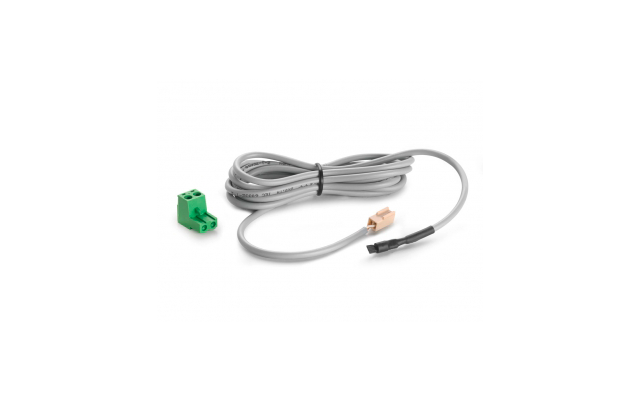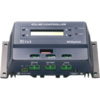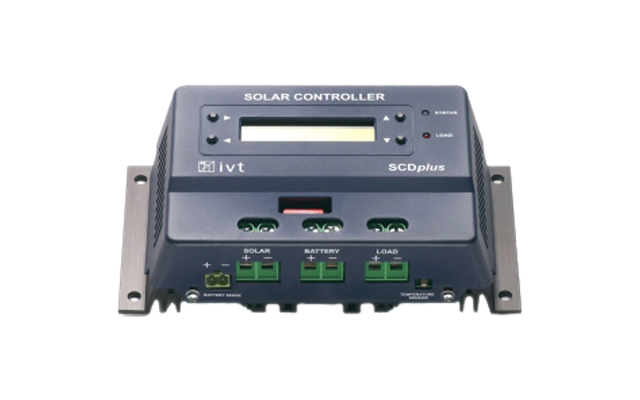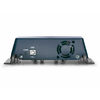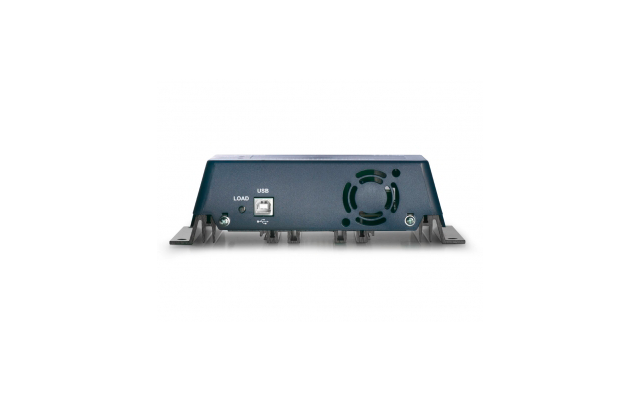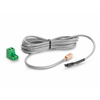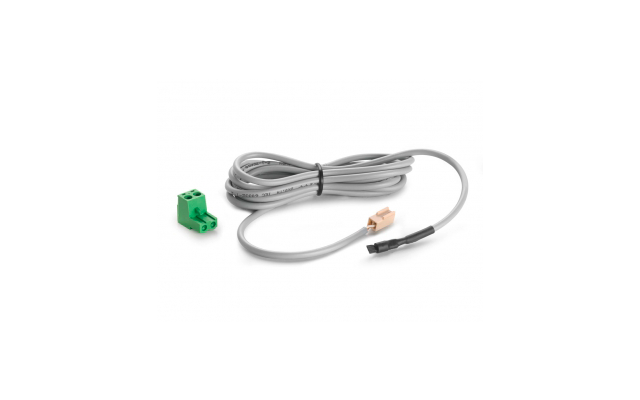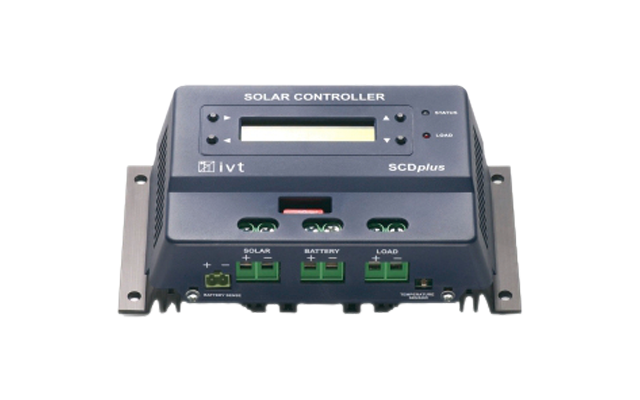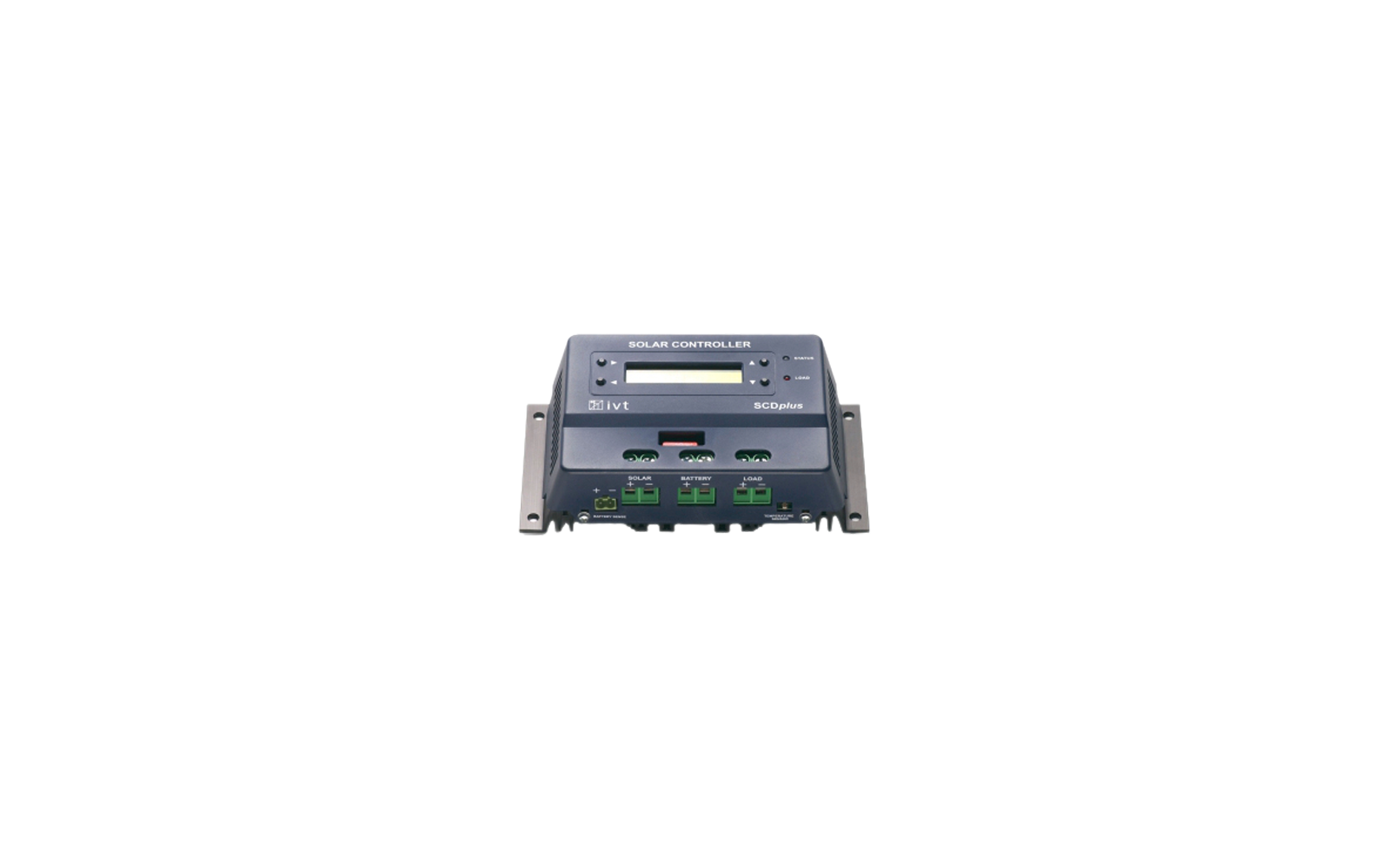IVT SCDplus Solar Controller Charge Controller 12 V / 24 V 15 AIVT SCDplus Solar Controller Charge Controller 12 V / 24 V 25 AIVT SCDplus Solar Controller Charge Controller 12 V / 24 V 40 A
Item no: 881058Item no: 345067Item no: 374359
RRP 120,13 €
92,99 €
Prices incl. statutory VAT,
free shipping
RRP 131,15 €
113,- €
Prices incl. statutory VAT,
free shipping
RRP 142,17 €
123,- €
Prices incl. statutory VAT,
free shipping
Availability:
Sold out
Availability:
Sold out
Availability:
Sold out
Product details
| Practical | High quality |
Product description
The high quality serial SCplus-/SCDplus-Solar-Controllers from IVT are characterized by their versatility. They offer you 4 predefined charging characteristics, which are optimally adapted to all common battery types. In addition, their load output has various special functions that can be set individually. In addition, certain charging parameters can be programmed via the free software and the data can be evaluated.
Details
In the case of the pulse-width modulated, serial charge controllers, 4 different charge programs are predefined, specially adapted to the respective battery type: Lead-acid, lead-gel, lead-AGM as well as LiFePO4
User programmable charging characteristics
In addition, a user-specific charging process can be programmed. A connection between the solar controller and the PC can be established using the USB interface. via the PC, the factory settings on the solar controller can be conveniently changed using the Windows software. Furthermore, the operating data of the solar system can be recorded, stored and evaluated. With the SCDplus solar controllers, programming and reading of the live parameters is possible on the device.
Automatic detection of system voltage 12 V/24 V
The SCplus/SCDplus solar charge controllers can be used for 12 V or 24 V systems. The system voltage is determined automatically.
Automatic temperature compensation
During the charging process, the temperature is measured via the external temperature sensor and thus the charging end voltage is dynamically adjusted to the temperature conditions. At high temperatures, the end-of-charge voltage is reduced - overcharging and unnecessary gassing are avoided. At low temperatures, the end-of-charge voltage is increased.
Voltage sensor for battery
An even more precise operation of the solar controller is possible due to the integrated voltage sensor connection. Through the cable between the solar charge controller and the battery, the battery voltage is measured even more precisely. This enables even more precise charging.
Multi-stage charging technology - matched to the battery type
Depending on the defined battery type (factory setting: lead-acid battery) and its final charge voltage, charging takes place in up to 3 stages. In charging stage 1, charging first takes place at maximum current until the corresponding final charging voltage is reached.
The final charge voltage of charge level 1 is then maintained for a defined period of time until the system switches to charge level 2, the trickle charge. The charging current is limited according to the principle of pulse width modulation (PWM). Both the charging profile for LiFePO4 batteries and the user-defined one offer a third charging stage.
Switchable standby function
A standby function is integrated in the SCplus-/SCDplus solar charge controllers. If the solar power is insufficient, the solar charge controller switches to standby mode. The solar charge controller's own consumption is thus reduced by up to 40 %.
This protects the connected battery and avoids unnecessary discharge. If there is sufficient solar voltage, the solar charge controller automatically returns from standby mode. In addition, the solar charge controller can be manually brought out of standby mode by pressing a button.
Programmable and switchable load output
Many individual settings can be made for the IVT solar controllers of the SCplus-/SCDplus series. The load output is individually programmable
The following options can be set for the load output:
1. Timer function:
Load output switches on or off at the defined times.
2. Night light function:
In the absence of solar power, the load output switches on after 2 minutes, when the
Solar power off again.
3. Automatic on/off:
When the end of discharge voltage is reached, the load output will automatically turn off.
As soon as the restart voltage is reached, on again.
4. Permanently off:
When the end-of-discharge voltage is reached, the load output remains permanently off,
even after the battery capacity has reached the reset voltage again
(factory setting).
The load output can also be switched on or off manually by pushbutton.
LED status display
2 LEDs quickly and reliably indicate the current charge level, warn of deep discharge and indicate the status of the load output.
Illuminated LCD display and convenient operating keys
Special feature SCDplus solar controller: Clear display - easy operation:
The SCDplus controllers also feature a clear and well-structured LCD display. It provides information on the most important parameters such as system voltage (12 V, 24 V or 48 V), solar input (energy meter), battery status (battery voltage, state of charge, charging current), ambient temperature, set temperature coefficient and load output (load current).
The following parameters can be configured via the display:
all important protective functions such as overcharge protection, deep discharge protection and reverse polarity protection are controlled fully automatically and without monitoring via the microprocessor.
Overcharge protection
As soon as the end-of-charge voltage is reached, the solar charge controller switches off the charge current. Overcharging and damage to the solar battery are thus prevented.
Deep discharge protection:
To protect the battery from irreparable damage in case of deep discharge, the connected load output is switched off when the final discharge voltage is reached. Depending on the setting of the load output, it remains switched off or is switched on again automatically if the battery has been sufficiently recharged. The end-of-discharge voltage and reset voltage can be individually parameterized via the display or the software. An optical warning (LED) is given shortly before the deep discharge limit is reached.
Protection against short circuit and reverse polarity:
The controllers are protected against short-circuit with a flat fuse and protected against reverse polarity.
Parameterization, monitoring and evaluation via PC
Parameterization and monitoring of the solar controller via PC:
With the help of the USB interface a connection between solar controller and PC can be established. With the Windows software, the charging profile, deep discharge protection, temperature coefficient, function of the load output, time and date can be configured conveniently on the PC. In addition, the operating data of the solar system can be logged, monitored and output as a *.txt file for evaluation.
Data recording and evaluation with free Windows software:
The following parameters are recorded every second
SCDplus-Solar-Controller 15 A / 25 A / 40 A (depending on order) External temperature sensor Connection adapter for battery sensor Operating instructions in DE, GB, FR, NL
Details
- LCD display
- Serial solar charge controller: precise, battery-saving charging
- Pulse width modulated (PWM) charge control
- Predefined charging characteristics
- Switchable load output (on/off)
- Timer function
- Night light function
- Standby function < 10 mA intrinsic current consumption
- Microprocessor controlled charging
- Multi-stage charging process
- Battery system voltage 12 V / 24 V
- Supported battery types lead-acid, -gel, -AGM, LiFePO4
- Type of charge control PWM serial
- Max. Module power 180 W / 360 W, 300 W / 600 W, 480 W / 960 W (depending on version)
- Max. Module voltage 50 V
- Max. Module / charge current 15 A / 25 A / 40 A (depending on version)
- Max. Load current 15 A / 25 A / 40 A (depending on version)
- Intrinsic current consumption, active 50 mA
- Intrinsic current consumption, standby < 10 mA
- Fuse 15 A / 25 A / 40 A (depending on version)
- Reverse polarity protection battery input yes
- Reverse polarity protection solar input yes
- overcurrent protection load output yes
- Temperature sensor yes (external), 1.5 m
- Operating temperature range -20 °C to +60 °C
- Maximum efficiency 98
- Common ground potential (negative pole) yes
- Switchable load output yes
- Software control yes
- PC interface USB (type B)
- Display LCD display + LED (version with 25 A only LED display)
- Housing plastic
- End of charge voltage, lead-acid 14 V / 28 V
- End of charge voltage, lead-gel 14.1 V / 28.2 V
- End of charge voltage, lead-AGM 14.7 V / 29.4 V
- End of charge voltage, LiFePO4 14.6 V / 29.2 V
- Float charge, lead-acid/lead-gel 13.7 V / 27.4 V
- Trickle charge, lead-AGM/LiFePO4 13.8 V / 27.6 V
- Temperature compensation minimum 25 mV/K / 50 mV/K
- Temperature compensation medium 30 mV/K / 60 mV/K
- Temperature compensation maximum 35 mV/K / 70 mV/K
- Cut-off voltage, factory setting 10.5 V / 21 V
- Cut-off voltage, adjustable range 10 V to 11 V / 20 V to 22 V
- Reset voltage, factory setting 12 V / 24 V
- Reset voltage, adjustable range 11.5 V to 12.5 V / 23 V to 25 V
In the case of the pulse-width modulated, serial charge controllers, 4 different charge programs are predefined, specially adapted to the respective battery type: Lead-acid, lead-gel, lead-AGM as well as LiFePO4
User programmable charging characteristics
In addition, a user-specific charging process can be programmed. A connection between the solar controller and the PC can be established using the USB interface. via the PC, the factory settings on the solar controller can be conveniently changed using the Windows software. Furthermore, the operating data of the solar system can be recorded, stored and evaluated. With the SCDplus solar controllers, programming and reading of the live parameters is possible on the device.
Automatic detection of system voltage 12 V/24 V
The SCplus/SCDplus solar charge controllers can be used for 12 V or 24 V systems. The system voltage is determined automatically.
Automatic temperature compensation
During the charging process, the temperature is measured via the external temperature sensor and thus the charging end voltage is dynamically adjusted to the temperature conditions. At high temperatures, the end-of-charge voltage is reduced - overcharging and unnecessary gassing are avoided. At low temperatures, the end-of-charge voltage is increased.
Voltage sensor for battery
An even more precise operation of the solar controller is possible due to the integrated voltage sensor connection. Through the cable between the solar charge controller and the battery, the battery voltage is measured even more precisely. This enables even more precise charging.
Multi-stage charging technology - matched to the battery type
Depending on the defined battery type (factory setting: lead-acid battery) and its final charge voltage, charging takes place in up to 3 stages. In charging stage 1, charging first takes place at maximum current until the corresponding final charging voltage is reached.
The final charge voltage of charge level 1 is then maintained for a defined period of time until the system switches to charge level 2, the trickle charge. The charging current is limited according to the principle of pulse width modulation (PWM). Both the charging profile for LiFePO4 batteries and the user-defined one offer a third charging stage.
Switchable standby function
A standby function is integrated in the SCplus-/SCDplus solar charge controllers. If the solar power is insufficient, the solar charge controller switches to standby mode. The solar charge controller's own consumption is thus reduced by up to 40 %.
This protects the connected battery and avoids unnecessary discharge. If there is sufficient solar voltage, the solar charge controller automatically returns from standby mode. In addition, the solar charge controller can be manually brought out of standby mode by pressing a button.
Programmable and switchable load output
Many individual settings can be made for the IVT solar controllers of the SCplus-/SCDplus series. The load output is individually programmable
The following options can be set for the load output:
1. Timer function:
Load output switches on or off at the defined times.
2. Night light function:
In the absence of solar power, the load output switches on after 2 minutes, when the
Solar power off again.
3. Automatic on/off:
When the end of discharge voltage is reached, the load output will automatically turn off.
As soon as the restart voltage is reached, on again.
4. Permanently off:
When the end-of-discharge voltage is reached, the load output remains permanently off,
even after the battery capacity has reached the reset voltage again
(factory setting).
The load output can also be switched on or off manually by pushbutton.
LED status display
2 LEDs quickly and reliably indicate the current charge level, warn of deep discharge and indicate the status of the load output.
Illuminated LCD display and convenient operating keys
Special feature SCDplus solar controller: Clear display - easy operation:
The SCDplus controllers also feature a clear and well-structured LCD display. It provides information on the most important parameters such as system voltage (12 V, 24 V or 48 V), solar input (energy meter), battery status (battery voltage, state of charge, charging current), ambient temperature, set temperature coefficient and load output (load current).
The following parameters can be configured via the display:
- Charging method
- Discharge end voltage
- Reset voltage
- Temperature coefficient
- Load output (reclosing yes/no, timer and night light function)
all important protective functions such as overcharge protection, deep discharge protection and reverse polarity protection are controlled fully automatically and without monitoring via the microprocessor.
Overcharge protection
As soon as the end-of-charge voltage is reached, the solar charge controller switches off the charge current. Overcharging and damage to the solar battery are thus prevented.
Deep discharge protection:
To protect the battery from irreparable damage in case of deep discharge, the connected load output is switched off when the final discharge voltage is reached. Depending on the setting of the load output, it remains switched off or is switched on again automatically if the battery has been sufficiently recharged. The end-of-discharge voltage and reset voltage can be individually parameterized via the display or the software. An optical warning (LED) is given shortly before the deep discharge limit is reached.
Protection against short circuit and reverse polarity:
The controllers are protected against short-circuit with a flat fuse and protected against reverse polarity.
Parameterization, monitoring and evaluation via PC
Parameterization and monitoring of the solar controller via PC:
With the help of the USB interface a connection between solar controller and PC can be established. With the Windows software, the charging profile, deep discharge protection, temperature coefficient, function of the load output, time and date can be configured conveniently on the PC. In addition, the operating data of the solar system can be logged, monitored and output as a *.txt file for evaluation.
Data recording and evaluation with free Windows software:
The following parameters are recorded every second
- Time (Time)
- Battery voltage (Voltage)
- Battery charge current (Charge current)
- Load current
- Temperature (Temperature).
SCDplus-Solar-Controller 15 A / 25 A / 40 A (depending on order) External temperature sensor Connection adapter for battery sensor Operating instructions in DE, GB, FR, NL
Features
| Type of solar panel | Solar accessories |
| Design | 15 A |
| Weight | 0,5 kg |
| Dimensions (LxWxH) | 190 x 105 x 55 mm |
| ean | 4030072200417 |
| Manufacturer Article No. | 200041 |
Features
| Type of solar panel | Solar accessories |
| Design | 25 A |
| Weight | 0,5 kg |
| Dimensions (LxWxH) | 190 x 105 x 55 mm |
| ean | 4030072200424 |
| Manufacturer Article No. | 200042 |
Features
| Type of solar panel | Solar accessories |
| Design | 40 A |
| Weight | 0,5 kg |
| Dimensions (LxWxH) | 190 x 105 x 55 mm |
| ean | 4030072200431 |
| Manufacturer Article No. | 200043 |
Legal information
Manufacturer information
Innovative Versorgungstechnik
Dienhof 14
92242 Hirschau
Germany
info@ivt-hirschau.de
Legal information
Manufacturer information
Innovative Versorgungstechnik
Dienhof 14
92242 Hirschau
Germany
info@ivt-hirschau.de
Legal information
Manufacturer information
Innovative Versorgungstechnik
Dienhof 14
92242 Hirschau
Germany
info@ivt-hirschau.de

































